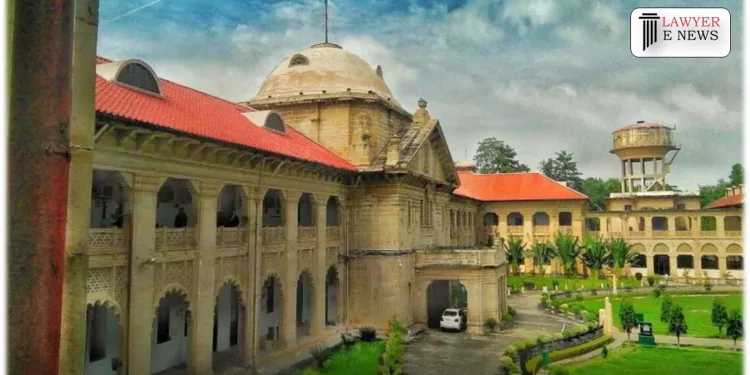“High Court Upholds Magistrate’s Discretion in Preliminary Inquiry

In a significant ruling, the High Court of Allahabad, led by Hon’ble Justice Anish Kumar Gupta, upheld the discretionary power of Magistrates in directing preliminary inquiries in criminal cases. The judgment, delivered on 7th November 2023, revolved around the legal contention of a Magistrate’s order for a preliminary inquiry, which was challenged under Section 482 of the Criminal Procedure Code (Cr.P.C.) by applicants who are advocates.
Justice Gupta, in his detailed observation, emphasized the necessity of judicial discretion and application of mind in matters of preliminary inquiries. He stated, “The scope of the preliminary inquiry is not to verify the veracity or otherwise of the information received but only to ascertain whether the information reveals any cognizable offence.” This statement underlines the court’s support for a system where judicial officers have the leeway to determine the course of investigation based on the merits of each case.
The case stemmed from an incident where the applicants, during a police operation, alleged mistreatment and violation of a court order by the police. Upon filing an application under Section 156(3) of the Cr.P.C. for registering an offence against the erring police officers, the Chief Judicial Magistrate of Ghaziabad directed a preliminary inquiry, leading to the present legal challenge.
In dismissing the application filed by the advocates, the High Court referred to the precedent set in the landmark case of Lalita Kumari Vs. Govt. Of U.P. and others, where the Supreme Court had outlined scenarios warranting preliminary inquiries. Justice Gupta iterated, “These are the only illustrative categories and not the exhaustive of all conditions, which may warrant the preliminary inquiry.”
Furthermore, the court reinforced the principle that the registration of FIR is mandatory if the information discloses the commission of a cognizable offence, with no preliminary inquiry permissible in such situations. This principle was highlighted as crucial for maintaining the balance between the rights of the accused and the complainant.
The judgment also cited Mrs. Priyanka Srivastava and Anr. Vs. State of U.P. and others, stressing the need for affidavits to support Section 156(3) Cr.P.C. applications, thereby ensuring responsibility and authenticity in criminal litigation.
This ruling has significant implications for the criminal justice system, reaffirming the discretionary powers of Magistrates and the importance of judicial prudence in criminal investigations. The decision is expected to guide future cases involving the interpretation and application of Section 156(3) of the Cr.P.C., particularly in situations requiring preliminary inquiries.
Date of Decision: Judgement Delivered on 07.11.2023
Khalid Khan And Another VS State Of U.P. And Another






